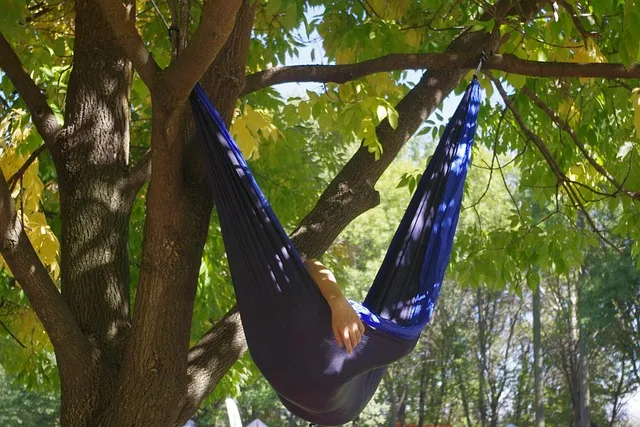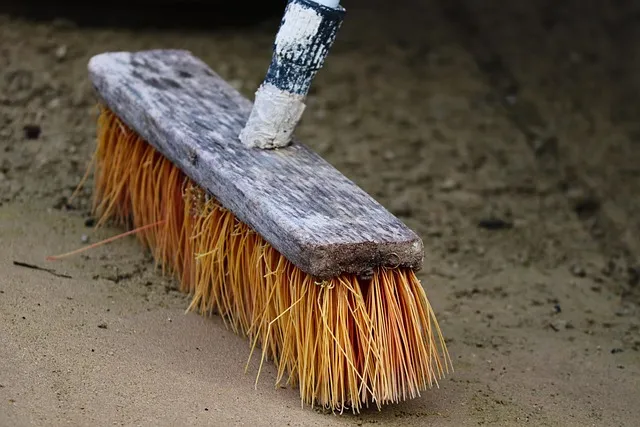
Greetings friends of the @holos-lotus community, I wish you an excellent and blessed day in the company of your loved ones, the school year is almost over and it is a time of rest for children. It is also the perfect occasion to go to the beach, museum, park or places of recreation where children can relax and have fun; this is my entry for the initiative of my friend @lilianajimenez De supersticiones, salud mental, bienestar y otras cosas. Iniciativa, we know superstitions since we were little, because our parents and grandparents are in charge of teaching them and this allows them to remain in force from generation to generation, when reading the title of the initiative, I remembered one that is very, very common during Holy Week, "do not eat capybara in a hammock or chinchorro" because it breaks and rots, although I do not know the explanation for this phenomenon, I have seen it happen, the chinchorro literally breaks by itself, that is when mothers and grandmothers are restless asking to know who ate capybara in the chinchoro,
When I was little, during Holy Week, it was customary to eat capybara meat and my mother always told us that under no circumstances should we sit down to eat in the hammock, because there is a belief that doing so will cause it to break, although my mother had warned us, one of my sisters forgot that eating capybara in the hammock was bad, she ate very calmly and as I mentioned before, without any explanation, after a few days the hammock began to rot and progressively broke until it could no longer be hung, because the upper part known as cabuyeras broke completely and the hammock could no longer be used, perhaps those who are knowledgeable and experts in this superstition will have a logical explanation, but what I did see and on several occasions was that indeed if you eat capybara in the hammock or hammock it breaks, what is the cause? I don't know, but it does happen.
Saludos amigos de la comunidad @holos-lotus, les deseo un excelente y bendecido día en unión de sus seres queridos, ya está terminando el año escolar y es una época de descanso para los niños. además es la ocasión perfecta para salir a la playa, museo, parque o lugares de esparcimiento donde los niños puedan relajarse y divertirse; esta es mi entrada para la iniciativa de la amiga @lilianajimenez De supersticiones, salud mental, bienestar y otras cosas. Iniciativa, las supersticiones las conocemos desde pequeños, pues nuestros padres y abuelos se encargan de enseñarlas y esto permite que se mantengan vigente de generación en generación, al leer el título de la iniciativa, recordé una que es muy común en semana santa, "no comer chigüire en una hamaca o chinchorro" porque este se rompe y pudre, aunque no conozco la explicación de este fenómeno, he visto que sucede, el chinchorro literalmente se rompe solo, es allí cuando las mamás y abuelas andan inquietas preguntando para saber quien comió chigüire en el chinchoro.
Cuando estaba pequeña, en la época de semana santa, se acostumbraba a comer carne de chigüire y mi mamá siempre nos decía que por nada nos sentáramos a comer en el chinchorro, porque hay la creencia de que al hacerlo este se rompe, aunque mi mamá nos había advertido, a una de mis hermanas se le olvidó que comer chigüire en el chinchorro era malo, ella comió de lo más tranquila y como lo mencioné anteriormente, sin explicación alguna, al cabo de pocos días el chinchorro empezó a pudrirse y progresivamente se fue rompiendo hasta que ya no se pudo colgar, porque la parte superior que se conoce como cabuyeras se rompió por completo y ya no se pudo usar el chinchorro, tal vez los conocedores y expertos de esta superstición tendrán una explicación lógica, pero lo que sí pude ver y en varias ocasiones fue que efectivamente sí se come chigüire en el chinchorro o hamaca este se rompe, ¿cuál es la causa? la desconozco, pero si sucede.



Another belief and superstition is placing a thread on children's foreheads when they have hiccups. I also don't know the purpose of thread to soothe hiccups, but it works. I remember when my first nephew was little, he had very severe hiccups, and I resorted to this belief. I placed the thread on his forehead. The hiccups were so severe that the thread kept falling off. To help him and keep the thread on his forehead, I placed an adhesive over the thread. This way, the thread stayed in place, and without realizing it, the child's hiccups disappeared. It's one of the effective treatments we have in my family to cure hiccups, because it really works.
In every home and family, there are a series of superstitions and beliefs that we inherit from our ancestors and put into practice. In addition to not eating capybara in the hammock and placing thread on children's foreheads to relieve hiccups, there is a very common superstition in the region where I live, which states that if you sweep someone's feet, they will never get married, and also if you open an umbrella inside the house, you will not get married either.
One of my friends, when we were teenagers, asked us to sweep her feet because she didn't want to get married, and she deliberately placed her umbrella inside the house and walked back and forth in the living room, claiming that she wasn't going to get married. In this case, the superstition didn't work. She was the first in the group to get married, and her children are now grown; she's even a grandmother.
Otra de las creencias y supersticiones es colocarle a los niños un hilo en la frente cuando tienen hipo, también desconozco el papel del hilo para calmar el hipo, pero funciona, recuerdo que cuando mi primer sobrino estaba pequeño le dio un hipo muy fuerte y recurrí a esta creencia, le coloqué el hilo en la frente, el hipo era tan fuerte que el hilo se le caía, para ayudarlo y que mantuviese el hilo en su frente, le coloqué encima del hilo un adhesivo, así el hilo se mantuvo en su lugar y sin darme cuenta al niño se le quitó el hipo, es uno de los tratamientos efectivos que tenemos en mi familia para curar el hipo, porque realmente funciona.
En cada hogar y familia hay una serie de supersticiones y creencias que las heredamos de nuestros antepadasos y las ponemos en práctica; además de no comer chigüire en el chinchorro y colocarle el hilo a los niños en la frente para el hipo, hay una superstición muy común en la región donde vivo, esta señala que si le barres los pies a una persona, esta nunca se va a casar y también si abres el paraguas dentro de la casa tampoco te vas a casar.
Una de mis amigas cuando éramos adolescentes, nos pedía que le barriéramos los pies, porque no quería casarse y ella misma adrede se colocaba el paraguas en la casa y caminaba por la sala de un lado a otro, afirmando que no se iba a casar, en este caso la superstición no funcionó, ella fue la primera del grupo en casarse y ya sus hijos están grandes, incluso es abuela.


This set of ancestral beliefs are an important part of the culture of every town. In fact, the elderly and grandparents defend them because they have grown up with them and have seen that they work. Superstitions and beliefs are firmly rooted in our families and we have acquired them from generation to generation. Some work, others may not, but they are there to remind us that our ancestors had extensive knowledge about mysteries and events that seem to have no logic.
Este conjunto de creencias ancestrales, forman parte importante de la cultura en cada pueblo, de hecho las personas ancianas y abuelos las defienden, pues han crecido con ellas y han visto que funcionan, las supersticiones y creencias están firmemente arraigadas a nuestras familias y las hemos adquirido de generación en generación, algunas funcionan otras tal vez no, pero están allí para recordarnos que nuestros ancestros tenían amplios conocimientos sobre los misterios y eventos que parecen no tener lógica.

¡Bendiciones!
Blessings!

Translated with https://www.deepl.com/translator